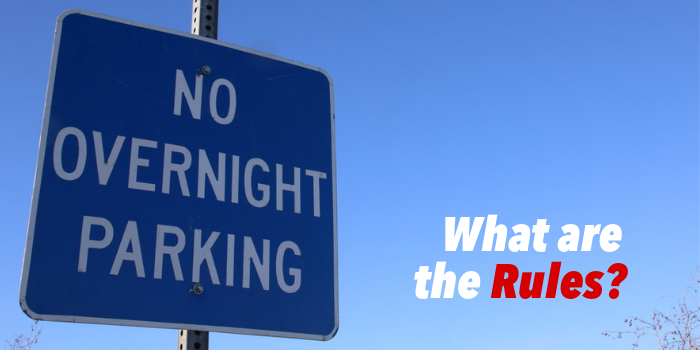Parking is one of the hottest issues in HOA-governed communities. Because of this, parking policies should be clearly spelled out in the association’s CC&Rs. Be sure that all expectations are clearly defined so that the rules are not open for interpretation, but rather, the homeowner can clearly determine what is expected.
Some examples of restrictions that should be defined in the HOA parking policy include:
- Which types of vehicles are allowed (commercial, personal, recreational, etc.).
- Which types of vehicles are not allowed (broken-down vehicles, larger RV’s, etc.).
- Where homeowners may and may not park.
- How long vehicles may be parked in one spot.
- During which hours vehicles may park in certain spaces.
These restrictions should also include specific language regarding overnight parking since “overnight” is objective, not subjective. While some may assume nighttime hours are, say, from 10 p.m. to 5 a.m., others may assume nighttime hours are whenever it’s dark outside, or any other hours during the night! Overnight parking limits are also a tricky issue because, who is to say how long a car has been parked, unless there is someone dedicated to watching the community streets and parking lots during certain hours. For instance, a homeowner may say that they parked from 10 p.m. to 12 a.m., then left and came back from 3 a.m. to 5 a.m.
The definition of “overnight” is largely up to each individual HOA to define in their CC&Rs. Clear, concise definitions of what “overnight parking” means in your community will avoid any confusion for residents. For example, “No parking on streets any time between the hours of 10:00 p.m. and 5:00 a.m.” is specific, clearly defined, and easy to understand.
Be Clear About HOA Parking
The rules should not only state where cars cannot park, but where they can park. (For example, stating that no cars belonging to residents or guests can park on the street and directing residents to guest parking lots for overflow parking.)
The CC&Rs should also lay out which steps homeowners should take in order to secure parking for guests, whether that be securing a guest parking pass, registering the visiting car with the HOA or management company, or any other necessary steps. It should also clearly state where guests are expected to park their vehicles.
Homeowners’ associations have the right and responsibility to regulate parking on private streets within the community. A private street is one which is owned or maintained by the association and is not open for use by the public. On private streets, associations can restrict the number of vehicles, prohibit or limit parking of commercial or recreational vehicles, and restrict street parking. The HOA generally cannot regulate parking on public streets. A public street is defined as any road that is owned and maintained by the government and is open for public use.
Enforcing Parking Rules
Any HOA should have fair and reasonable restrictions on parking while ensuring that all homeowners are aware of the rules in place. All rules should be enforced fairly and consistently. The HOA does have the ability to tow improperly parking vehicles.
In order to legally tow a vehicle, the HOA must:
- Give prior notice to the homeowner of parking restrictions being violated. This can be through posted signs throughout the development, or by issuing a parking citation at least 96 hours prior to towing the vehicle.
- Provide written authorization for the tow. This step will verify to the towing operator that the person requesting the tow has the proper authority to do so.
- Report the tow through the proper channels – both to the owner and local traffic law enforcement agency. This is normally required to be done within one hour of authorizing the tow.
Though parking enforcement is often a sticky issue for homeowners in HOA communities, open communication and clearly defined rules will help to considerably cut down on resident confusion and contention.







